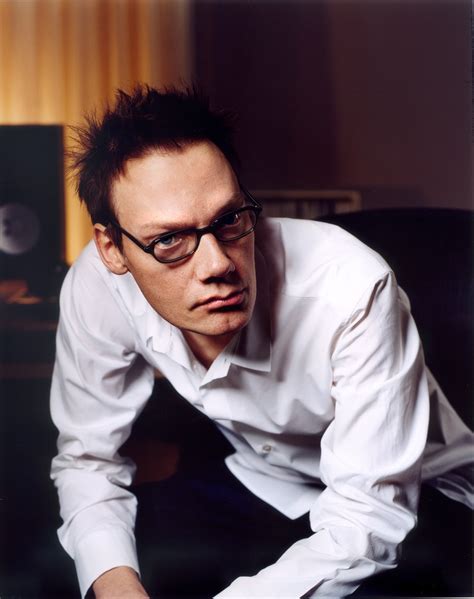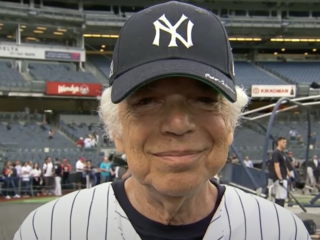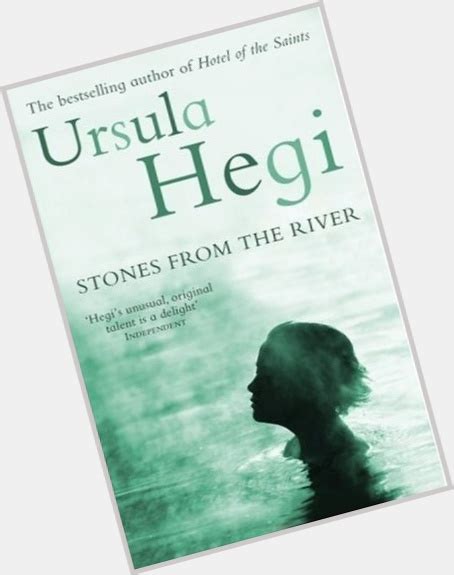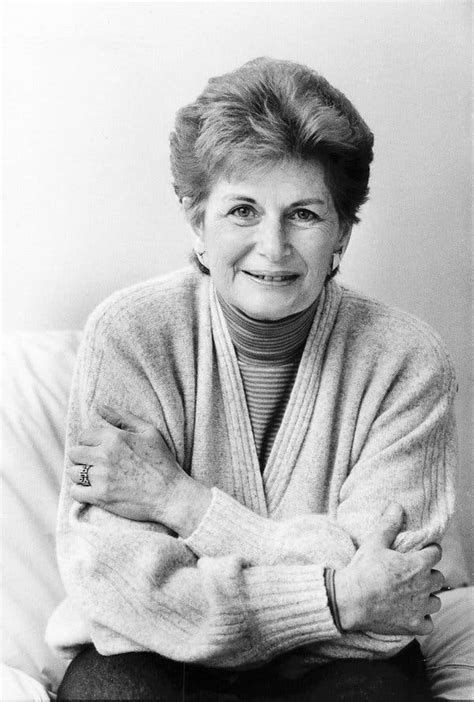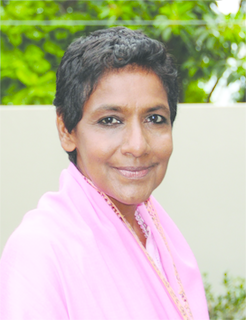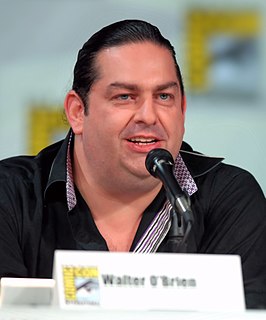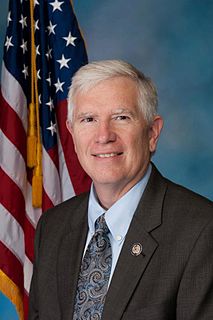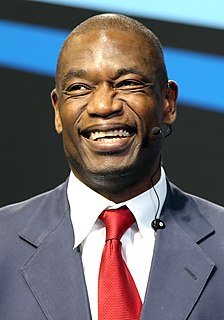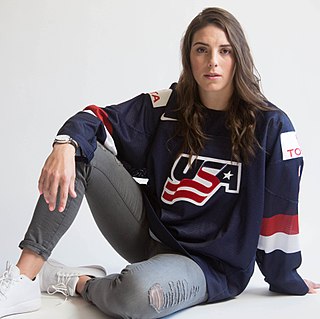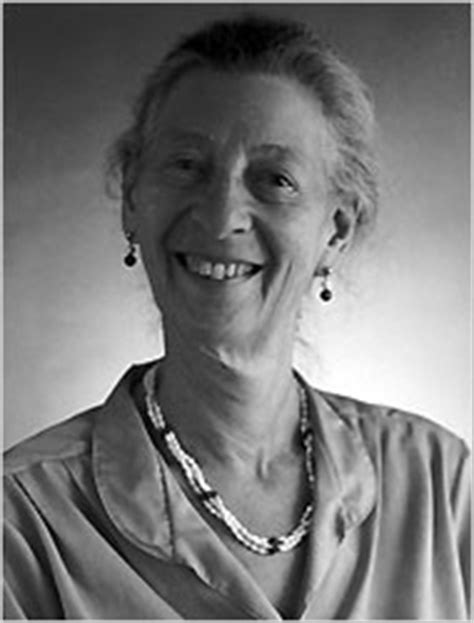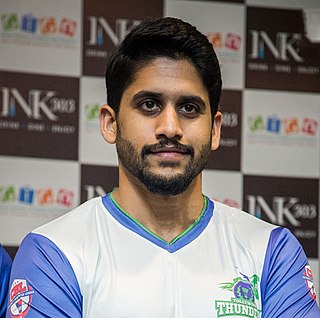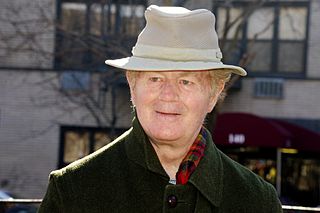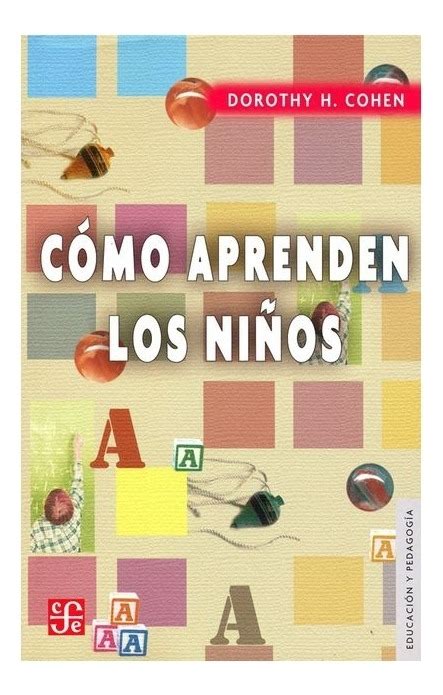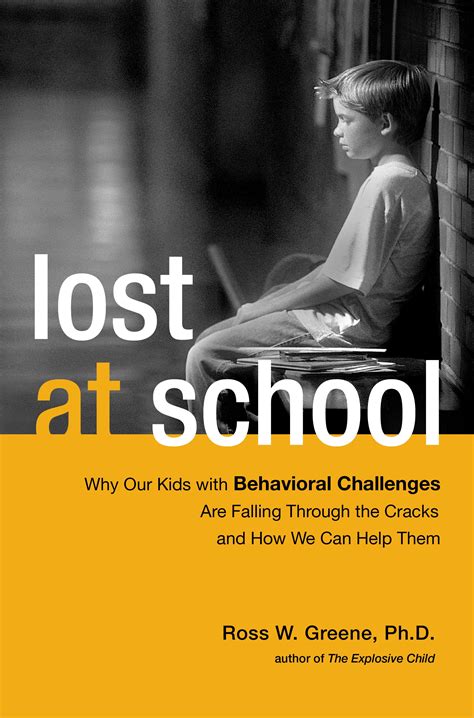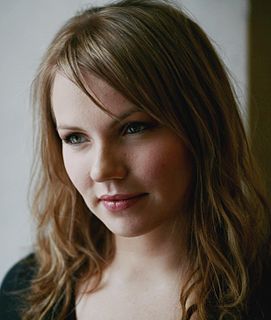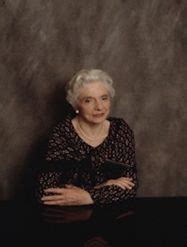Top 1200 Adoptive Parents Quotes & Sayings - Page 15
Explore popular Adoptive Parents quotes.
Last updated on April 20, 2025.
I lived in a plenty tough neighborhood. When somebody called me a 'dirty little Guinea', there was only one thing to do-break his head. When I got older, I realized that you shouldn't do it that way. I realized that you've got to do it through education. Children are not to blame. It is the parents. How can a child know whether his playmate is an Italian, a Jew or Irish, unless the parents have discussed it in the privacy of their homes.
I think that we all desperately try to fit in to different molds: our parents, our bosses, our partners, social status, friends. We all figure out a look that we think will get us the job or make his parents approve of us or get that girl to want to go on a date, whatever. We all change ourselves to please whoever it is.
My parents were working class folks. My dad was a bartender for most of his life, my mom was a maid and a cashier and a stock clerk at WalMart. We were not people of financial means in terms of significant financial means. I always told them, 'I didn't always have what I wanted. I always had what I needed.' My parents always provided that.
You like to explore things, and your parents don't like it because it gets the pots and pans dirty, and because it's noisy - but for you it's fun, you're resting. You're actually doing experiments... Just tell your parents that they're experiments, and you want to become a scientist, and then they won't stop you from doing anything you want.
The authoritarian child-rearing style so often found in working-class families stems in part from the fact that parents see aroundthem so many young people whose lives are touched by the pain and delinquency that so often accompanies a life of poverty. Therefore, these parents live in fear for their children's future--fear that they'll lose control, that the children will wind up on the streets or, worse yet, in jail.
The best way of thinking of an attachment in my view, is to see it as the outcome of an interaction between two people, each of whom contributes to the quality of the relationship. Most parents can promote a secure relationship with a calm, pleasant, patient baby. Only particularly sensitive and patient parents can promote a secure attachment to a difficult baby.
The fact is that Chinese parents can do things that would seem unimaginable-even legally actionable-to Westerners. Chinese mothers can say to their daughters, "Hey fatty-lose some weight." By contrast, Western parents have to tiptoe around the issue, talking in terms of "health" and never ever mentioning the f-word, and their kids still end up in therapy for eating disorders and negative self image.
I've only twice in my life come across someone with both high IQ and high EQ naturally; and that was because their parents were super high EQ, and the parents just EQ'd the hell out of them. They're inevitably very successful because now you've got someone who's sharper than the average person and well-rounded, too.
[17th-century] Puritans were the first modern parents. Like many of us, they looked on their treatment of children as a test of their own self-control. Their goal was not to simply to ensure the child's duty to the family, but to help him or her make personal, individual commitments. They were the first authors to state that children must obey God rather than parents, in case of a clear conflict.
What parents and teachers and caregivers did with me that actually worked and a lot of that was the old fashion 50s upbringing. They just gave the instruction when I did something wrong - life was more structured. So basically it's [my work] based on experiences with me that worked and it was teachers and parents that made me have those experiences.
Adolescents' immature thinking makes it difficult for them to process the divorce. They tend to see things in black-and-white terms and have trouble putting events into perspective. They are absolute in their judgments and expect perfection in parents. They are likely to be self-conscious about their parent's failures and critical of their every move. They have the expectations that parents will keep them safe and happy and are shocked by the broken covenant. Adolescents are unforgiving.
Something else was different when we were young: our parents were outdoors. I’m not saying they were joining health clubs and things of that sort, but they were out of the house, out on the porch, talking to neighbors. As far as physical fitness goes, today’s kids are the sorriest generation in the history of the United States. Their parents may be out jogging, but the kids just aren’t outside.
My benefactor told me that my father and mother had lived and died just to have me, and that their own parents had done the same for them. He said that warriors were different in that they shift their assemblage points enough to realize the tremendous price that has been paid for their lives. This shift gives them the respect and awe that their parents never felt for life in general, or for being alive in particular.
I would expect illegal alien parents to take care of their children. If it means the kids go back home with them, that's what happens. If it means there are legal relatives in the United States that can take care of them, that can happen to. But I believe it's the parents responsibility to take care of the kids.
If you've ever had to recall your past in some way and you open a drawer of old photographs that your parents kept, there are always pictures of you smiling and charming, and then a bunch of people you don't know who they are. Could be aunts, uncles, could be the postman for all you know. Who are these people? Your parents are never in the picture, because they are the ones taking them. So you've got these unrelated images that are disconnected from your memories.
Parents of handicapped children are occasionally embarrassed or hurt by others who awkwardly express sympathy but cannot know or appreciate the depth of the parents love for a handicapped child. Perhaps there is some comparison in the fact that there is no less love in families for the helpless infant who must be fed, bathed, and diapered than for the older but still dependent members. We love those we serve and who need us.
I grew up in a town where there were no adults over forty who weren't somebody's parents. It was, unfortunately, the kind of town that's a "great places to raise kids" - that's basically code for "there are no adults here who are not parents." I had a few teachers who were kind of weirdo drama teachers and were hugely influential.
In the segregated South, education was almost like armor. It was a way to put yourself in a category where even with the slings and arrows and humiliations of racism and segregation, somehow you had better control of the situation. I always said my parents understood that you might not be able to control your circumstances, but they and their parents believed that you could control your reaction to your circumstances.
India's sex ratio is 1000 boys for 940 girls. Who creates this disparity? It isn't God. Don't fill your coffers by sacrificing the mother's womb. People feel that sons will take care of them when they are old. But I have seen aged parents in old-age homes. I have seen families where one daughter serves parents more than five sons.
My parents find me hilarious. They don't pull me up for anything because I'm a good daughter. I stay at home, don't party too much, people don't talk about my affairs or that I am unprofessional. In fact, people tell my parents that I'm so well-brought up. Yes, I tend to shoot my mouth off, but they don't pull me up for that.
At a certain age your parents seem like the most embarrassing thing on the whole entire planet, and you want to be nowhere near them. But at the end of the day, you know that you can't literally do anything without them. You love your parents through and through, and they love you probably even more than you could ever imagine until you're a parent yourself.
I started playing drums at a pretty early age because my parents were musicians. My dad was an amazing multi-instrumentalist and I can play a lot of instruments, but my dad actually played all the instruments I could play and then added another twenty five or thirty five different categories on there ...he was incredible! He got an act actually in Vegas, my parents Bobby and Phyllis Sherwood.
I've always had a passion for giving back. It's a family tradition that comes from my devout parents. They were always giving back and serving the community. So when I became fortunate enough and blessed to play the game of basketball, I was also fortunate enough to follow in my parents' footsteps and give back like the way they did.
And I’ve said this all across the country when I talk to parents about education, government has to fulfill its obligations to fund education, but parents have to do their job too. We’ve got to turn off the TV set, we’ve got to put away the video game, and we have to tell our children that education is not a passive activity, you have to be actively engaged in it. If we encourage that attitude and our community is enforcing it, I have no doubt we can compete with anybody in the world.
Even today . . . experts, usually male, tell women how to be mothers and warn them that they should not have children if they have any intention of leaving their side in their early years. . . . Children don't need parents' full-time attendance or attention at any stage of their development. Many people will help take care of their needs, depending on who their parents are and how they chose to fulfill their roles.
We fell in love during the making of 'Ye Maaya Chesave' in 2009, and the love affair continued very well in the following years. I was, however, delaying revealing to my parents about my love affair despite Sam's insistence. One day, when we were chatting casually, Sam threatened to tie a 'rakhi' on me if I didn't tell about the love to my parents.
[A] new generation, innocent of the divisions of the Cold War, this coming-of-age. ... If its members do not feel the urgency to escape the nuclear danger that some of its parents felt, neither has it developed the deep attachment to nuclear arms also often found among their parents, including most of the governing class. ... The call for abolition should therefore be, among other things, a call from an older generation to younger one.
If you ask the government to solve all of your problems, it's a bit like asking your wife to cook and clean, to raise the children, to hold down a second job to help with the family finances, to keep her parents happy and well and keep your parents happy and well, and to also - to do the lawn and clean the gutters.
Nevertheless, no school can work well for children if parents and teachers do not act in partnership on behalf of the children's best interests. Parents have every right to understand what is happening to their children at school, and teachers have the responsibility to share that information without prejudicial judgment.... Such communication, which can only be in a child's interest, is not possible without mutual trust between parent and teacher.
A lot of parents aren't exactly sure how to go about solving a problem with a kid in a way that's mutually satisfactory - doing that with their child feels very foreign to a lot of people. It probably explains why so many parents tell me their kids don't listen to them and why so many kids tell me that they don't feel heard.
The upshot of pervasive public belief in the uncontrollable sexuality of teenagers, and even of pre-teenagers, is that parents arehalf-hearted in their efforts to supervise and control their children, even when they are filled with anxiety as to their children's ability to cope with a full-fledged sexual relationship. "How can we buck the tide?" parents say helplessly, often without making quite certain that the ocean they see is a real one and not a mirage.
Storytelling is how we survive, when there's no feed, the story feeds something, it feeds the spirit, the imagination. I can't imagine life without stories, stories from my parents, my culture. Stories from other people's parents, their culture. That's how we learn from each other, it's the best way. That's why literature is so important, it connects us heart to heart.
I have been singing since I was two years old, my parents tell me, and started to write songs when I was fifteen. Eventually, my friends and my parents knew that this was something I liked to do. They also knew I had a dream of making my own album. They have always been encouraging me to do something about it, and so I did. So I went to a local radio station in Tromsø, and there I got to record a couple of songs.
You are born into a dangerous world, there are all sorts of ways in which you could die, and you need to believe your parents when they tell you don't go near the edge of the cliff, or don't pick up that snake, etc. There could very well be a Darwinian survival value in that sort of brain rule of thumb. And a by-product of that could be that you believe your parents when they tell you about the juju in the sky, or whatever it might be.
I worry about the kids who have too much. As a parent living in a so-called good neighborhood with children who went to private high school, I found myself spending much time in parent groups worrying about alcohol, unsupervised parties, and parents not being parents. We've got to send messages to our kids about what is important.
History is a story like any other, but black history is a story so devoid of logic that it frustrates the young reader. The young readers in my house, told of slavery and segregation, asked in disbelief, 'What? Why?' We - the parents of black children, the parents of all children - still need to tell that story.
Where I grew up in St. Louis, Saturday was country music day on television. We'd watch the Bill Anderson show, the Willie Nelson show, the Dolly Parton and Porter Wagoner show, and always the Grand Ole Opry. My parents were fans of that music, and my friend's parents would pull the TV out and watch those shows on the porch.
There are many things children accept as "grown-up things" over when they have no control and for which they have no responsibility--for instance, weddings, having babies, buying houses, and driving cars. Parents who are separating really need to help their children put divorce on that grown-up list, so that children do not see themselves as the cause of their parents' decision to live apart.
My parents both renounced their material lives and were living as monks at an ashram in L.A. when they met each other. So we were always raised in this environment and when we moved to the ashram in Florida it was just like, "Oh, wow, now all of a sudden there's more people like us," because we were growing up in the middle of Texas with our parents, always being the weirdos.
Despite the long-term reduction in familial roles and functions, we believe that parents are still the world's greatest experts about the needs of their own children. Virtually any private or public program that supports parents, effectively supports children. This principle of supporting family vitality seems to us preferable to any policy that would have the state provide children directly with what it thinks they need.
Parents should teach their children to pray. The child learns both from what the parents do and what they say. The child who sees a mother or a father pass through the trials of life with fervent prayer to God and then hears a sincere testimony that God answered in kindness will remember what he or she saw and heard. When trials come, that individual will be prepared.
I had to call in because I do believe, I know of cases, it is happening that some of these kids that weren't born here but they've lived here all their lives, they are being deported. And I also know of cases where the kids are born here, they're American citizens, they're put in foster homes and their parents are deported, and their parents are begging to get their kids back. That actually is happening.
I get so sick and tired of hearing people gripe about what their parents did to them. You know what your parents did to you? The best thing they could do. The best thing they knew how, the only thing in many cases that they knew how. Nobody has set out maliciously to hurt their child, unless they were psychotic.
My parents were strict. They weren't as strict on me as they were with the others, but my mother didn't want us to get on anyone's nerves... Go to someone else's house and drive their parents crazy. Another thing was they didn't want us to get into a lot of things that a lot of kids - if they're not careful - can slip into.
Consider Social Security. The young have always contributed to the support of the old. Earlier, the young helped their own parents out of a sense of love and duty. They now contribute to the support of someone else's parents out of compulsion and fear. The voluntary transfers strengthened the bonds of the family; the compulsory transfers weaken those bonds.
Another striding instance is recorded by the very intelligent traveler regarding a representation of the fall of our first parents, sculptured in the magnificent temple of Ipsambul in Nubia. He says that a very exact representation of Adam and Eve in the Garden of Eden is to be seen in that cave, and that the serpent climbing round the tree is especially delineated, and the whole subject of the tempting of our first parents most accurately exhibited.
A child in its greed for love does not enjoy having to share the affection of its parents with its brothers and sisters; and it notices that the whole of their affection is lavished upon it once more whenever it arouses their anxiety by falling ill. It has now discovered a means of enticing out its parents' love and will make use of that means as soon as it has the necessary psychical material at its disposal for producing an illness.
Children who are not encouraged to do, to try, to explore, to master, and to risk failure, often feel helpless and inadequate. Over-controlled by anxious, fearful parents, these children often become anxious and fearful themselves. This makes it difficult for them to mature. Many never outgrow the need for ongoing parental guidance and control. As a result, their parents continue to invade, manipulate, and frequently dominate their lives.
Of course I love you, So let's have a kid. Who will say exactly What its parents did; "Of course I love you, So let's have a kid. Who will say exactly What its parents did; 'Of course I love you, So let's have a kid Who will say exactly What its parents did -'" Et cetera. -NOBLE CLAGGETT (1947-1966)
